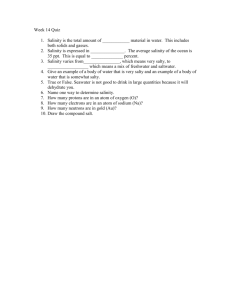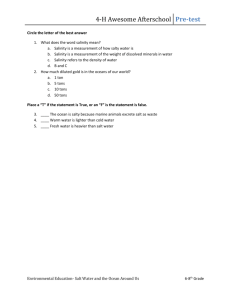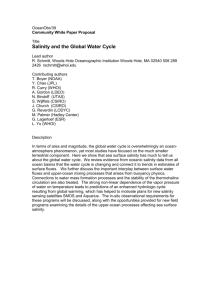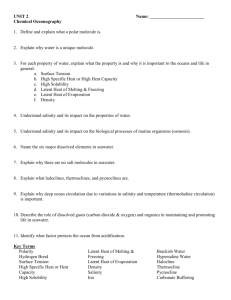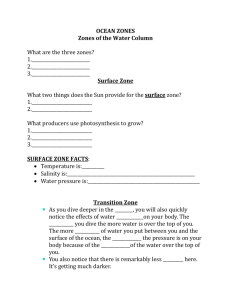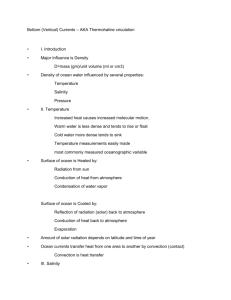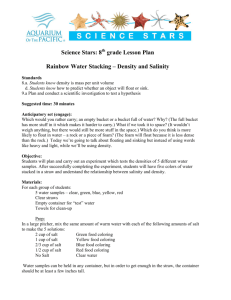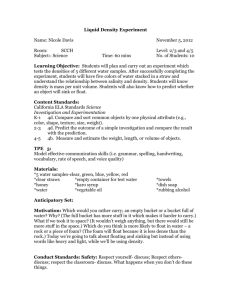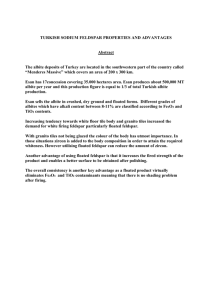Ocean Water Density Lab Key:
advertisement
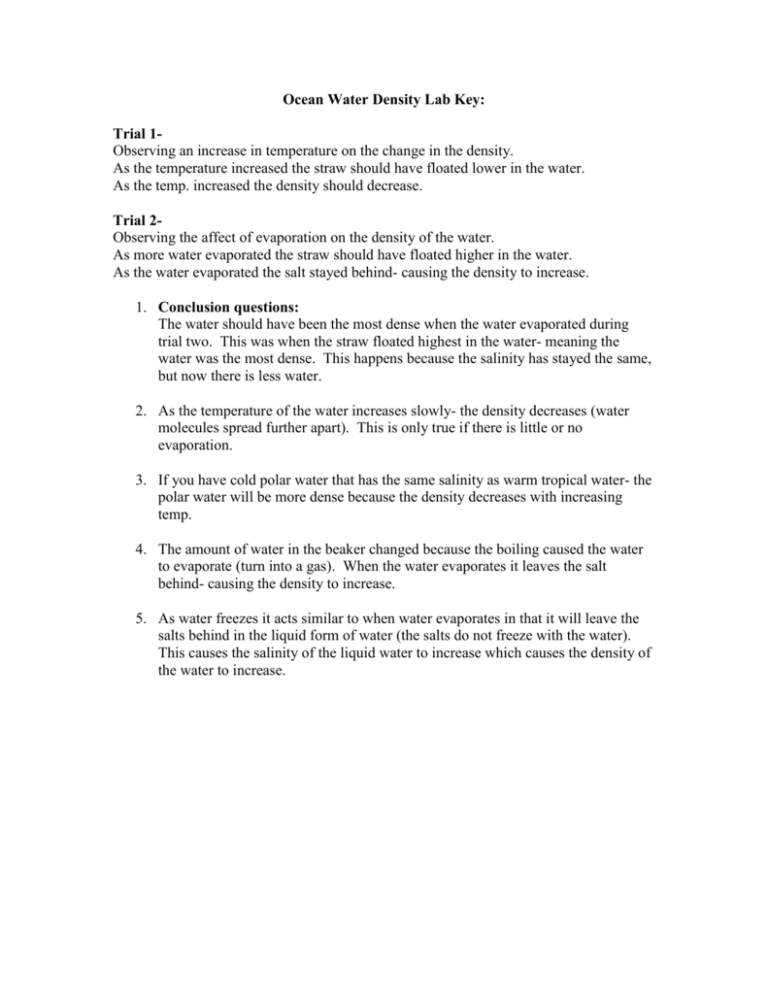
Ocean Water Density Lab Key: Trial 1Observing an increase in temperature on the change in the density. As the temperature increased the straw should have floated lower in the water. As the temp. increased the density should decrease. Trial 2Observing the affect of evaporation on the density of the water. As more water evaporated the straw should have floated higher in the water. As the water evaporated the salt stayed behind- causing the density to increase. 1. Conclusion questions: The water should have been the most dense when the water evaporated during trial two. This was when the straw floated highest in the water- meaning the water was the most dense. This happens because the salinity has stayed the same, but now there is less water. 2. As the temperature of the water increases slowly- the density decreases (water molecules spread further apart). This is only true if there is little or no evaporation. 3. If you have cold polar water that has the same salinity as warm tropical water- the polar water will be more dense because the density decreases with increasing temp. 4. The amount of water in the beaker changed because the boiling caused the water to evaporate (turn into a gas). When the water evaporates it leaves the salt behind- causing the density to increase. 5. As water freezes it acts similar to when water evaporates in that it will leave the salts behind in the liquid form of water (the salts do not freeze with the water). This causes the salinity of the liquid water to increase which causes the density of the water to increase.
